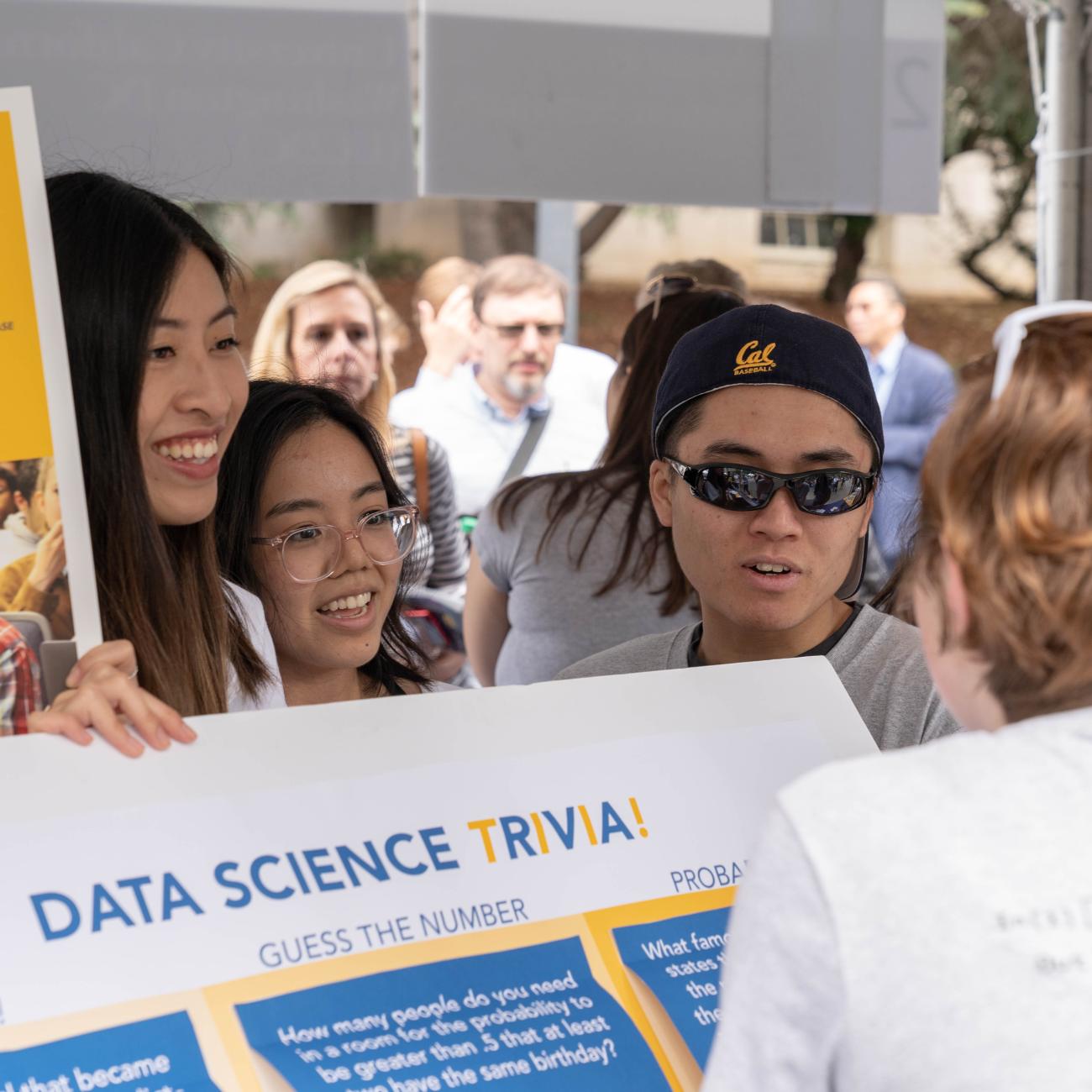UC Berkeley Data Science: The Transfer Experience
Berkeley's Data Science B.A. ranks #1 in the U.S. Our curriculum provides students with deep technical knowledge, expertise in how to apply that knowledge in a field of their choosing, and an understanding of the human contexts and ethical implications of how data are collected, analyzed, and used.
In Berkeley Data Science, we recognize the value that transfer students bring to our program. We offer robust support for our transfer students to excel in the classroom and beyond.
Deciding whether UC Berkeley is the best school for you? Connect with a Data Science adviser or current student.
Is Data Science at Berkeley right for me?
Our students come from all types of backgrounds and interests, with career pursuits including Data Analyst, Machine Learning Engineer, Software Engineer, Business Intelligence Analyst, Research Scientist, and beyond. The Data Science major is interdisciplinary and includes classes from every corner of campus. This interdisciplinary approach allows students to create a curriculum that best fits their educational goals, including graduate school and career pursuits.
- ~1600 students are declared in the Data Science major
- 1 in 5 Data Science students is a transfer student
- Women make up nearly half of the Data Science student population
Preparing to Transfer
To understand how to prepare for the Data Science major at your California community college, visit Assist.org. Please note:
- You must choose Data Science on your UC Berkeley application.
- To be admitted in Fall 2024, Data Science transfer students must have completed Calc I/Math 1A, Calc II/Math 1B, and Linear Algebra/Math 54 or Math 56 prior to transfer.
- We strongly recommend that the computing requirements (Intro to Data Science/Data 8, Program Structures/CS 61A, and Data Structures/CS 61B) are completed prior to your first fall semester at UC Berkeley, but it is possible to be admitted to the major without these requirements. Students should plan to complete these requirements during their first semester at Berkeley.
- Data 8 is currently offered at a growing number of California Community Colleges. Click here to see a list of CCCs that offer Data 8.
- Taking additional computing, math, and/or statistics courses can be very helpful, but is not required.
New in Fall 2024 - Pursuing Data Science
Transfer students who are offered admission to the College of Letters & Science during academic years 2024-25, and have selected the Data Science major on their application, will be directly admitted into the major. If you are interested in majoring in Data Science, it is strongly recommended that you select it on your UC Berkeley application. We hope to have more information about the possibility of double majoring with Data Science in the coming months.
The Data Science minor remains open and transfer students who are interested in Data Science but did not come in declared Data Science should consider the minor as an alternative (especially if you have some experience in programming and/or statistics).




